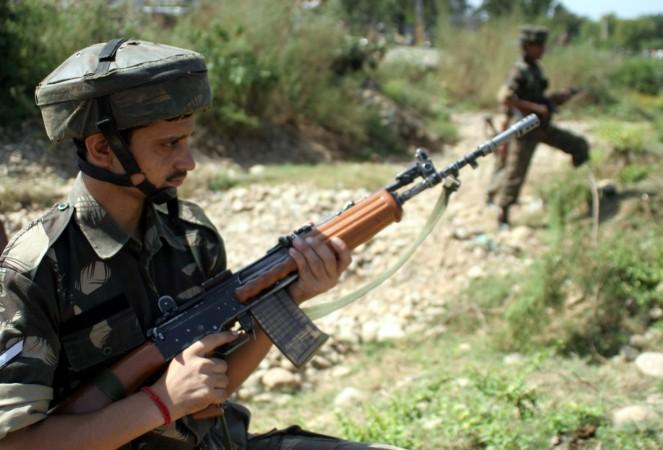The Border Security Force (BSF) is tasked with keeping the infiltrators at bay, but it is a persistent problem that India faces from neighboring countries, be it Pakistan, Bangladesh, Nepal or Myanmar. Incidentally, the Minister of State in the Ministry of Home Affairs Nisith Pramanik confirmed that there haven't been any infiltrations at China and Bhutan border in the last three years, the same cannot be said about other international borders. When the government's decision to increase the jurisdiction of the BSF in some border states was questioned, MoS Home Nityanand Rai shared a response, explaining the reasons.
Rai noted that the threat of advanced technologies like drones and UAVs demanded increased surveillance. Increasing jurisdiction of BSF in some states empowers the forces to effectively guard the borders. The minister also noted that other threats like anti-national forces, arms smuggling and fake Indian currency notes are also looming threats.
![India's Border Security Force personnel patrol along the fencing of the India-Bangladesh international border. [Representational Image] India-Bangladesh border](https://data1.ibtimes.co.in/en/full/563655/india-bangladesh-border.jpg?h=450&l=50&t=40)
"The extension in territorial jurisdiction of BSF in some states is aimed at empowering BSF to discharge its border guarding duties more effectively in the wake of use of technology like Dynamic Remotely Operated Navigation Equipment (Drones), Unmanned Aerial Vehicle (UAVs), etc generally having long range, by anti-national forces for surveillance as well as for smuggling of arms, narcotics and fake Indian currency notes (FICN)," Ministry of Home Affairs said in its written response to a question asked by Pilibhit MP Varun Gandhi of the Bharatiya Janata Party.
Rai added that increasing territorial jurisdiction will also help curb the menace of cattle smuggling. The smugglers often take refuge in the interior areas that fall outside the jurisdiction of the BSF, limiting the capabilities to execute their duties effectively.
Extending BSF's jurisdiction
The MHA had extended the jurisdiction of BSF from 15km to 50km inside the international borders in Punjab, West Bengal and Assam. The government order was issued on October 11. This triggered unrest in the border states, especially Punjab and WB which are not ruled by BJP. The ruling parties in these states have called the move infringement of federal rights of the states.

The West Bengal and Punjab Assemblies unanimously passed a resolution last month, rejecting the government's notice on extending BSF's jurisdiction. The BSF issued a clarification, stating it is a border guarding force and will continue to guard the borders as mandated by the government.
Describing the opposition by West Bengal and Punjab as a sheer "political" move, former BSF DG Prakash Singh recently said that under the new notification, the BSF has been mandated to search and arrest a person or persons only under the Passport Act 1967, Passport (Entry into India) Act 1920 and specified sections of the Criminal Procedure code, which includes any person illegally entering into the Indian territory.
"It is merely an enabling provision aimed at strengthening and complementing the efforts of the state police. In any case, the BSF will have to hand over the accused with the seized consignments to the local police for further investigation. The power to register FIR and investigate the case will remain with the state police," Singh said earlier, adding that the Punjab government's claim that half of the state would fall under the jurisdiction of BSF is misleading.
Section 139 of the Border Security Force Act, 1968, empowers the Centre to notify the area and extent of the border force's operational mandate from time to time.









!['Had denied Housefull franchise as they wanted me to wear a bikini': Tia Bajpai on turning down bold scripts [Exclusive]](https://data1.ibtimes.co.in/en/full/806605/had-denied-housefull-franchise-they-wanted-me-wear-bikini-tia-bajpai-turning-down-bold.png?w=220&h=138)



